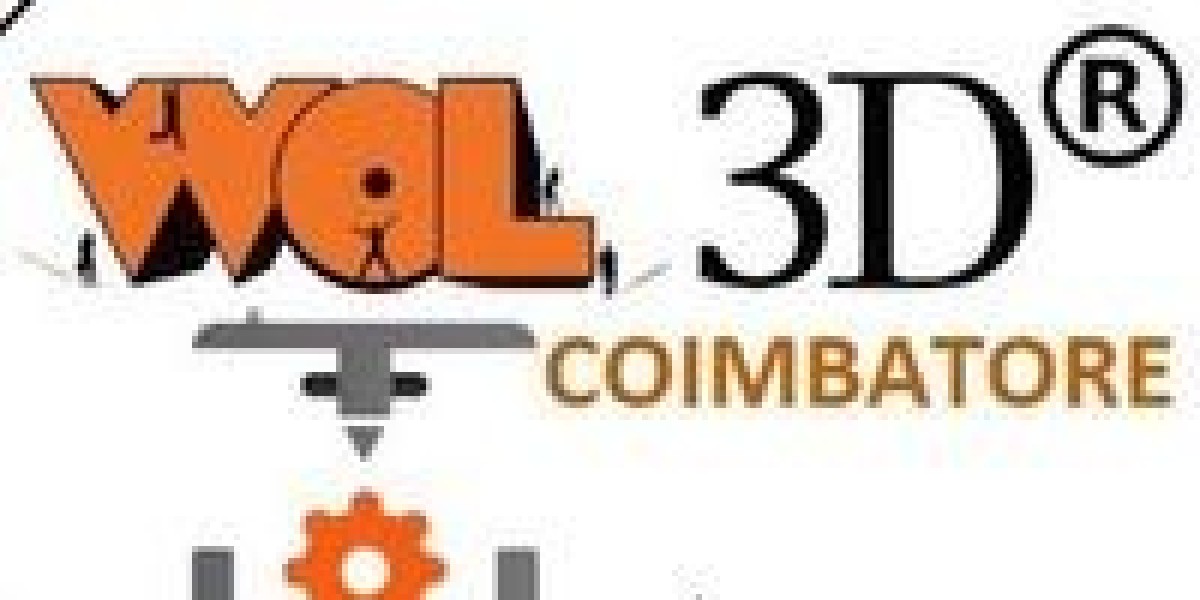In the realm of industrial operations, the efficiency and reliability of machinery are paramount. Various components contribute to the seamless functionality of these systems, with support rollers being among the most crucial. For industries across India, finding reliable Support Roller Suppliers in Gujarat is key to maintaining high operational standards.
Understanding Support Rollers
Support rollers, also known as trunnion rollers, are vital cylindrical components that provide support and stability to rotary equipment. These rollers are integral to ensuring the smooth rotation and alignment of heavy machinery, which is essential for efficient industrial operations.
Functions of Support Rollers
Support rollers perform several essential functions, including:
- Load Bearing: Support rollers bear the weight of rotating equipment, ensuring stability during operation.
- Alignment Maintenance: They help maintain the proper alignment of machinery, preventing lateral and axial movements that could cause operational issues.
- Facilitation of Rotation: By providing a smooth surface, support rollers enable the continuous and efficient rotation of equipment.
- Vibration Reduction: They dampen vibrations, reducing wear and tear and extending the lifespan of machinery.
Types of Support Rollers
Support rollers are available in various types, each designed to meet specific industrial needs. These include:
1. Plain Support Rollers
Plain support rollers feature a simple cylindrical shape and are used in applications with relatively low loads and less demanding operating conditions.
2. Flanged Support Rollers
Flanged support rollers have flanges on one or both sides, providing extra lateral support. This design is beneficial for applications where there is a risk of axial movement or misalignment.
3. Tapered Support Rollers
Tapered support rollers have a conical shape, allowing them to handle higher loads and provide better stability. They are commonly used in heavy-duty applications such as mining and cement industries.
4. Self-Aligning Support Rollers
Self-aligning support rollers are designed to automatically adjust to the alignment of the rotating equipment, maintaining optimal performance and reducing wear and tear.
Materials Used in Support Rollers
The materials used in the construction of support rollers significantly influence their performance and durability. Common materials include:
1. Cast Steel
Cast steel is renowned for its strength, durability, and resistance to wear and impact. It is particularly suitable for heavy-duty applications.
2. Stainless Steel
Stainless steel offers superior corrosion resistance, making it ideal for use in harsh environments where exposure to moisture, chemicals, or extreme temperatures is common.
3. Alloy Steel
Alloy steel provides enhanced mechanical properties, such as improved hardness, toughness, and wear resistance, making it suitable for demanding applications.
4. Ductile Iron
Ductile iron offers a good balance between strength and machinability, making it a cost-effective option for various industrial applications.
Manufacturing Process of Support Rollers
The manufacturing process of support rollers involves several stages to ensure high quality and precision. These stages include:
1. Design and Engineering
The initial stage involves designing and engineering the support rollers, creating detailed drawings and specifications based on the application's specific requirements.
2. Material Selection
Selecting the appropriate material is crucial to ensure the support rollers can withstand the operating conditions and loads they will encounter.
3. Casting or Forging
Support rollers can be manufactured using either casting or forging processes. Casting involves pouring molten metal into a mold, while forging shapes the metal through compressive forces.
4. Machining
After casting or forging, the support rollers undergo machining to achieve the required dimensions and surface finish, ensuring precise alignment and smooth rotation.
5. Heat Treatment
Heat treatment processes, such as annealing, quenching, and tempering, enhance the mechanical properties of the support rollers, improving their strength and durability.
6. Quality Control
Quality control measures, including non-destructive testing and dimensional inspections, ensure that the support rollers meet the required standards and specifications.
Applications of Support Rollers
Support rollers are integral to the operation of various industrial equipment. Common applications include:
1. Rotary Kilns
Rotary kilns, used in the cement, lime, and mineral processing industries for calcining and sintering materials, rely on support rollers for alignment and smooth rotation.
2. Rotary Dryers
Rotary dryers remove moisture from materials in industries such as food processing, pharmaceuticals, and chemical processing. Support rollers ensure efficient rotation and even drying.
3. Trommel Screens
Trommel screens, used in mining and recycling applications for separating materials based on size, rely on support rollers to facilitate rotation and effective screening.
4. Rotary Coolers
Rotary coolers, used to cool hot materials such as clinker in cement production, depend on support rollers for stability and smooth operation.
5. Rotating Drums
Rotating drums, used in various industrial processes such as mixing, blending, and agglomeration, rely on support rollers for continuous rotation.
Choosing the Right Support Roller Supplier
Selecting a reliable support roller supplier is essential to ensure the quality and performance of the components. When searching for Support Roller Suppliers in Gujarat, consider the following factors:
1. Experience and Expertise
Choose a supplier with extensive experience and expertise in manufacturing support rollers for your specific industry. An experienced supplier can provide valuable insights and recommendations.
2. Quality Standards
Ensure the supplier adheres to strict quality control standards and uses high-quality materials in the manufacturing process. Look for certifications such as ISO to verify their commitment to quality.
3. Customization Options
A good supplier should offer customization options to meet your specific requirements, including designing support rollers with the appropriate dimensions, materials, and features for your application.
4. Technical Support
Look for a supplier that provides excellent technical support and after-sales service, ensuring you have access to assistance and troubleshooting when needed.
5. Competitive Pricing
While quality should be a priority, consider suppliers that offer competitive pricing without compromising on the quality of their products.
Maintenance and Troubleshooting of Support Rollers
Proper maintenance of support rollers is crucial to ensure their longevity and optimal performance. Regular inspections and maintenance can help identify and address issues before they escalate.
1. Regular Inspections
Conduct regular inspections to check for signs of wear, misalignment, and damage. Look for any unusual noises or vibrations during operation.
2. Lubrication
Ensure support rollers are adequately lubricated to reduce friction and wear. Use the recommended lubricants and follow the manufacturer's guidelines for lubrication intervals.
3. Alignment Checks
Regularly check the alignment of the support rollers to ensure they are properly aligned with the rotating equipment. Misalignment can lead to uneven wear and reduced efficiency.
4. Wear Monitoring
Monitor the wear of support rollers and replace them when necessary. Excessive wear can compromise the stability and performance of the equipment.
5. Troubleshooting Common Issues
Be prepared to troubleshoot common issues such as uneven wear, excessive noise, and misalignment. Address these issues promptly to prevent further damage.
Integration of SS Fabrication Services
Incorporating high-quality SS Fabrication Services in Bilaspur can significantly enhance the performance and durability of support rollers. Stainless steel fabrication offers superior corrosion resistance, making it ideal for harsh industrial environments. Collaborating with expert fabricators ensures that the support rollers and related components meet the highest standards of quality and reliability.
Future Trends in Support Rollers
The support roller industry is continuously evolving, with advancements in materials, design, and manufacturing processes. Some future trends to watch for include:
1. Advanced Materials
The development of new materials with enhanced properties, such as increased wear resistance and improved load-bearing capacity, will contribute to the performance and longevity of support rollers.
2. Smart Technology Integration
The integration of smart technology, such as sensors and IoT (Internet of Things), will enable real-time monitoring of support rollers. This will facilitate predictive maintenance and reduce downtime.
3. Sustainable Manufacturing
The focus on sustainability will drive the adoption of eco-friendly manufacturing processes and materials in support roller production.
4. Customization and Personalization
The demand for customized and personalized support rollers will increase, allowing industries to obtain components tailored to their specific needs and requirements.
5. Enhanced Design and Engineering
Advancements in design and engineering software will enable more precise and efficient design of support rollers, resulting in improved performance and reliability.
Conclusion
Support rollers are indispensable components in various industrial operations, providing essential support and stability to rotating equipment. Understanding their functions, types, and applications allows industries to make informed decisions when selecting and maintaining support rollers. Partnering with reputable Support Roller Suppliers in Gujarat and integrating high-quality SS Fabrication Services in Bilaspur can significantly enhance the efficiency and reliability of industrial operations. As technology and materials continue to advance, the future of support rollers looks promising, with enhanced performance and sustainability on the horizon.








